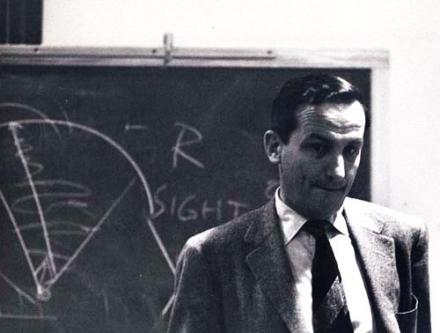Philosopher and art historian Rudolf Arnheim inveighs against a pedagogical culture that privileges abstract reasoning to the detriment of artistic and sensory modes of perception.

The arts are neglected because they are based on perception, and perception is disdained because it is not assumed to involve thought. In fact, educators and administrators cannot justify giving the arts an important position in the curriculum unless they understand that the arts are the most powerful means of strengthening the perceptual component without which productive thinking is impossible in any field of endeavor. The neglect of the arts is only the most tangible symptom of the widespread unemployment of the senses in every field of academic study. What is most needed is not more aesthetics or more esoteric manuals of art education but a convincing case made for visual thinking quite in general. Once we understand in theory, we might try to heal in practice the unwholesome split which cripples the training of reasoning power. …
The Greek thinkers were subtle enough not to simply condemn sensory experience but to distinguish between the wise and the unwise use of it. The criterion for how to evaluate perception was supposed to come from reasoning. Heraclitus had warned that “barbarian souls” cannot correctly interpret the senses: “Evil witnesses are eyes and ears for men, if they have souls that do not understand their language.” Thus, the split overcome in the conception of the physical world was now introduced into that of the mind. Just as the realm of order and truth had been beyond the range of life on earth, so it was now beyond the realm of the senses in the geography of the inner world. Sensory perception and reasoning were established as antagonists, in need of each other but different from each other in principle.
By no means, however, were the Greek philosophers unaware of the problem this distinction created. They were unwilling to exalt reason dogmatically at the price of deprecating the senses. Democritus seems to have faced the dilemma most directly. He distinguished the “dark” cognition of the senses from the “bright” or genuine cognition by reasoning but had the senses address reason scornfully as follows: “Wretched mind, do you, who get your evidence from us, yet try to overthrow us? Our overthrow will be your downfall.”
Arnheim, Rudolf. 1969. Visual Thinking. Berkeley: University of California Press. pp. 2-6. || Amazon || WorldCat
